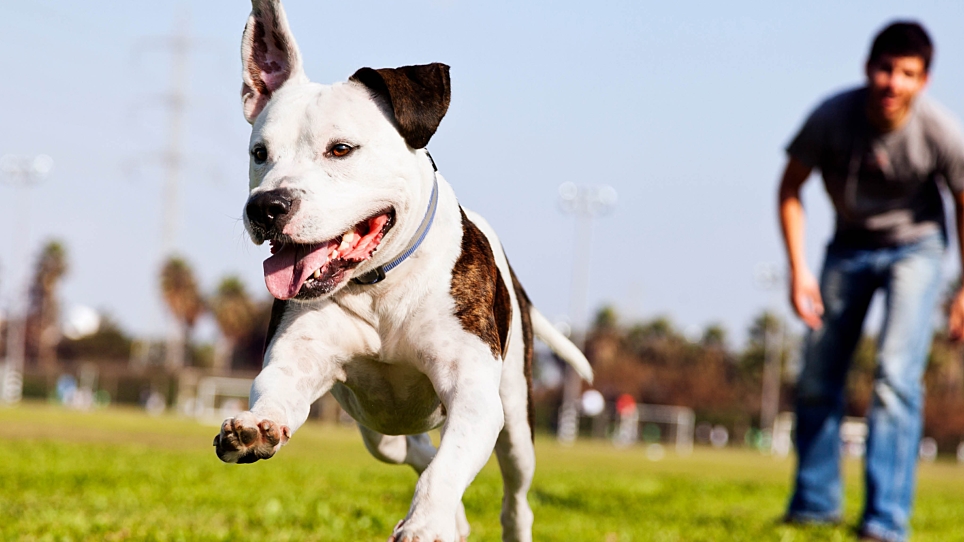Food and water
Your dog needs a healthy, nutritionally balanced, meat-based diet and access to fresh, clean water.
Feeding your pet with good quality dry kibble and wet food twice to three times each day will help keep them healthy. Follow the serving sizes for your dog's weight and age recommended by the food brand or your vet. We recommend feeding your dog Purina.
Microchipping and ID
Good news – because you adopted from AWL, your dog has a microchip. How great is that? Now, all you've got to do is keep your pet's microchip details up-to-date if your address or contact details change.
It's also a great idea to put an engraved tag on your dog's collar. That way, if your puppy escapes, anyone who finds them can contact you quickly.
Vaccinations
Your dog needs an annual C3 vaccination to protect them against three common and dangerous viruses that could make them very sick.
Puppies need their initial vaccination at eight weeks, another at 12 weeks and a final booster at 16 weeks old.
The canine Cough vaccine is essential, too. If your dog attends dog parks, boarding kennels or training groups, they'll need to be protected against Canine Cough.
Your dog's vaccination needs might vary depending on their age and medical history, too. So, it's best to discuss this with your vet.
Fleas
Flea prevention is the best form of control. Untreated flea infestations can cause ongoing health issues for your dog.
Contact your vet for prevention and treatment options. Ask your vet about some of the 'spot-on' products that cover worms and fleas in one.
Use high-quality flea treatments recommended by your vet and avoid supermarket brands as they're less safe or effective.
Worming
Remember to worm your adult dog every three months using your vet's recommended treatment options. Follow the dose directions on the packet according to your dog's weight and treat all of your animals simultaneously.
Vet care
Your dog will need yearly check-ups with your local vet to make sure they're in good health. If your dog's more senior or has some existing health concerns, check-ups might need to be more regular.
Chat with your vet to work out a plan for your pet.
Teeth
Your pet needs clean, healthy teeth. Some commercial dry foods reduce dental plaque, and you can get specialised dental care products from your vet.
Giving your dog raw bones will help their dental health, and they'll enjoy chewing them. But, there are some risks associated with feeding your pet bones – so check with your vet first.
Remember to never give your pet cooked bones.
Grooming
A matted coat is painful for your dog. So, they'll need regular brushing and grooming. If your dog has medium to long hair, they'll need daily grooming to keep the fur knot-free. Otherwise, a short coat will need occasional brushing and more regularly through shedding seasons.
Your dog's nails need regular checks and possible trimming – which you can do at home. Just chat to your vet about how to do this safely. Otherwise, it might be best to get the help of a grooming expert.
Lifestyle
All dogs at every age need regular exercise. Whether it's a gentle walk or a zoomy playdate – your pooch loves fun.
Taking your dog out for a daily walk is a great way to keep them active. There are also lots of ways you can make sure they're having fun at home, too. Your dog will love playing with puzzle toys, doing regular training and playing games to keep their brain busy.
